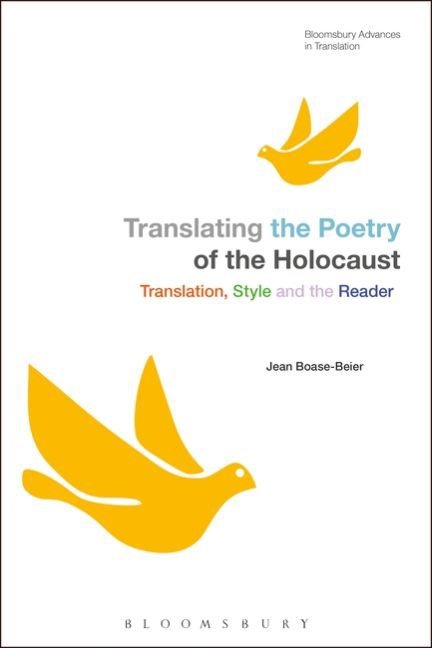Read more
Zusatztext A stimulating and extremely determined attempt to get to grips with the relationship between text and context and the centrality of that relationship to our construction of meaning in general and to the practice of translation in particular. Whether Boase-Beier is using these reflections as an aid for the translator, or using the translation problem to get closer to the texts and our experience of them is largely irrelevant. Informationen zum Autor Jean Boase-Beier is Professor of Literature and Translation at the University of East Anglia, UK. Taking a cognitive approach, this book asks what poetry, and in particular Holocaust poetry, does to the reader - and to what extent the translation of this poetry can have the same effects. It is informed by current theoretical discussion and features many practical examples. Holocaust poetry differs from other genres of writing about the Holocaust in that it is not so much concerned to document facts as to document feelings and the sense of an experience. It shares the potential of all poetry to have profound effects on the thoughts and feelings of the reader. This book examines how the openness to engagement that Holocaust poetry can engender, achieved through stylistic means, needs to be preserved in translation if the translated poem is to function as a Holocaust poem in any meaningful sense. This is especially true when historical and cultural distance intervenes. The first book of its kind and by a world-renowned scholar and translator, this is required reading. Vorwort Explores how cognitive poetic theory helps us understand poetry in general and Holocaust poetry in particular. Zusammenfassung Taking a cognitive approach, this book asks what poetry, and in particular Holocaust poetry, does to the reader - and to what extent the translation of this poetry can have the same effects. It is informed by current theoretical discussion and features many practical examples.Holocaust poetry differs from other genres of writing about the Holocaust in that it is not so much concerned to document facts as to document feelings and the sense of an experience. It shares the potential of all poetry to have profound effects on the thoughts and feelings of the reader.This book examines how the openness to engagement that Holocaust poetry can engender, achieved through stylistic means, needs to be preserved in translation if the translated poem is to function as a Holocaust poem in any meaningful sense. This is especially true when historical and cultural distance intervenes. The first book of its kind and by a world-renowned scholar and translator, this is required reading. Inhaltsverzeichnis 1. Holocaust Poetry and Holocaust Poetics2. Reading Holocaust Poetry in and as Translation3. Translating Holocaust Poetry4. Translation and UnderstandingBibliographyIndex...
List of contents
1. Holocaust Poetry and Holocaust Poetics
2. Reading Holocaust Poetry in and as Translation
3. Translating Holocaust Poetry
4. Translation and Understanding
Bibliography
Index
About the author
Jean Boase-Beier is Professor of Literature and Translation at the University of East Anglia, UK.
Report
This volume's greatest contribution ... is in its well-informed call to translate, and make visible, a significant corpus of Holocaust-related poetry still unavailable in English. Translation and Literature

